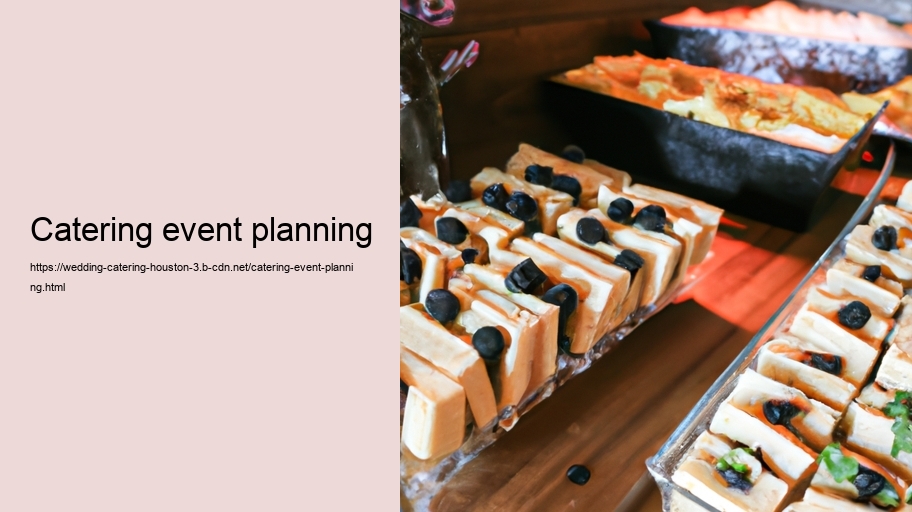Catering event planning is an intricate and multifaceted process that requires a blend of creativity, organization, and attention to detail. This essay will delve into the various aspects of catering event planning, illustrating its importance in ensuring the success of any event.
At its core, catering event planning involves orchestrating all food-related components of an occasion—be it a wedding, corporate gathering, birthday party, or any other celebratory affair. The ultimate aim is to provide a seamless dining experience that complements the overall theme and objectives of the event.
The initial stage in catering event planning is consultation and conceptualization. Planners must meet with clients to understand their vision, preferences, budget constraints, and specific requirements for their event. It's during this phase that planners ask probing questions: What is the occasion? How many guests are expected? Are there any dietary restrictions? These inquiries form the foundation upon which the entire catering plan will be built.
Once there's clarity on client needs, menu development begins. This crucial step demands both culinary expertise and knowledge of current trends in food and beverage. A skilled caterer knows how to balance classic favorites with innovative dishes to create a memorable menu that caters to diverse palates while also fitting within budgetary limits. Moreover, they must ensure that every dish maintains its integrity from kitchen to table—a feat achieved through meticulous logistical coordination.
Presentation is another critical component of catering eventy planning. Food not only has to taste exceptional but also look enticing. Caterers work closely with designers or use their own aesthetic sensibilities to arrange food displays that enhance the overall ambiance of an event space. Whether it’s elegant platters for a black-tie gala or vibrant buffet setups for a casual get-together, presentation plays a pivotal role in shaping guests’ dining experiences.
Logistics management forms the backbone of successful catering event planning. Coordinators must handle myriad details such as equipment rentals (tables, chairs), tableware (linens, dinnerware), staff scheduling (chefs, servers), and transportation logistics (delivery times). Each element must be meticulously planned out well in advance to prevent last-minute hurdles.
In addition to managing tangible elements like decor and equipment, effective communication skills are imperative for coordinating between multiple parties—including venue managers, decorators, entertainment providers—and ensuring everyone is aligned with the timeline and setup requirements.
Risk management cannot be overlooked either when it comes to food safety standards; temperature controls; allergy accommodations; backup plans for inclement weather (if outdoors); among other potential issues—all need due consideration under risk assessment protocols within catering event planning practices.
Finally yet importantly comes execution—the day-of implementation where months of careful preparation culminate into action. Herein lies the artistry: adapting quickly when unforeseen challenges arise without compromising service quality or guest experience—an attribute that distinguishes proficient caterers from average ones.
In conclusion,cateringeventplanningisanartformthatdemandsacombinationofculinaryprowess,strategicsavvy,andimpeccableexecution.Creatinganenjoyablediningexperienceisnotsimplyamatterofservingfoodbutcraftinganatmosphericandgastronomicaljourneythatelevatestheoverallevent.Attheheartofitallliesapassionforcelebrationandacommitmenttoexcellence—hallmarksofanygreatcatererevent planner.
